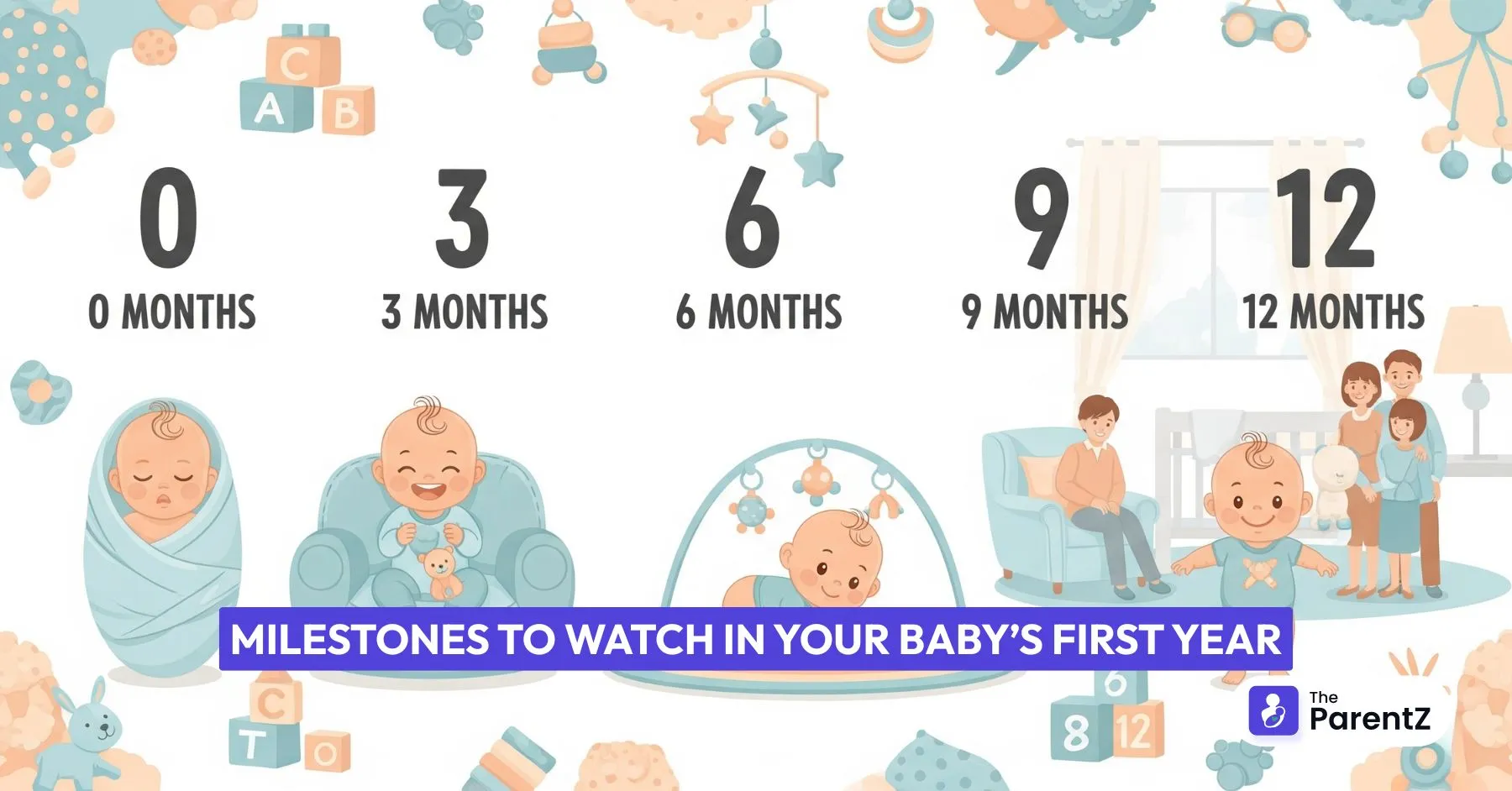So, you’ve welcomed your tiny baby, and you’re now officially in the world of firsts: first smile, first giggle, first time you wonder why diaper sizes are so confusing. The first year with your baby is filled with excitement, wonder, and a whole lot of questions. If you’re a new parent, you might be feeling overwhelmed or worried about whether your baby is “on track.” Take a deep breath. You are not alone, and there’s no such thing as a perfect parent.
The Big Milestones: What Usually Happens and When
Every baby is unique. Some will be early birds, others will take their sweet time. Here’s what most babies do as they move through their first year:
Social and Emotional Milestones
- Your baby smiles at you—really smiles, not just from gas—typically around 2 months. That first grin is your reward for all the sleepless nights!
- By 1 year, your baby will likely play games like pat-a-cake, and might cry when you leave or show shyness around strangers.
- Favorites become a thing—expect cuddling with that one raggedy teddy bear.
Language and Communication
- Early on, you’ll hear those adorable babbles and coos.
- Around 9-12 months, you may get a real word like “mama” or “dada.”
- Waving “bye-bye” usually starts before the first birthday, connecting words and actions.
- They start understanding “no,” though whether they listen is a whole other story!
Cognitive (Learning and Problem-Solving)
- Babies love playing “find the hidden toy” as early as 8 months.
- You’ll notice your child putting blocks in cups and taking them out—a big brain workout at this age!
- Around their first birthday, they’ll start following simple instructions and copying gestures.
Movement and Physical Development
- Rolling, sitting, and eventually crawling (typically by 9 months—it’s exercise for you, too!).
- By 7-9 months, sitting without help is common.
- Pulling up to stand and “cruising” along furniture may come next.
- First independent steps usually show up between 9 and 17 months, with most babies walking by their first birthday.
Feeding and Sleeping
- Sometime between 4 to 6 months, many babies (and their grateful parents) finally sleep through the night.
- Around 9-12 months, your child may start eating finger foods. Keep choking hazards in mind and never leave them unattended.
What If My Baby Isn’t Hitting These Milestones?
First: try not to panic. Milestone “charts” are averages, not deadlines. Some perfectly healthy babies take their time, especially with things like crawling or walking. If your baby is late in one area but moving forward in others, it usually isn’t cause for concern.
However, reach out to your baby’s doctor if you notice:
- Your baby doesn’t smile or respond to your voice by 2-3 months.
- No babbling, gestures (like waving or pointing), or single words by 12 months.
- Doesn’t sit without help by 9 months, or isn’t crawling or attempting to stand.
- Loss of skills they once had.
Doctors expect small variations, so they’ll look at the big picture.
Common Parenting Worries and Real-Life Tips
You might be asking: “Is my baby normal? Why does my friend’s baby already have teeth and mine doesn’t say a word?”
Here are some things every parent faces:
- Comparing with Other Babies: Try not to! Every baby has their own timeline.
- Lack of Sleep: It gets better. Most babies sleep through the night by 4-6 months, but some are night owls for longer.
- Feeding Issues: Some breastfeed, some bottle-feed, some do both. If your baby is growing and happy, you’re doing fine.
- Not Meeting Milestones Exactly: Early intervention is helpful if needed, but small delays are often just part of normal development.
How to Help Your Baby Grow
- Talk and Sing to your baby all the time, even if it feels silly.
- Play games together like peek-a-boo and hide-and-seek.
- Read books aloud and encourage your baby to hand you a book when they want a story.
- Cheer their efforts: If they try to talk or stand, celebrate—even if it’s just babble or a wobbly squat.
When to See the Doctor
If your instinct says something is off, talk to your pediatrician. Early support can make all the difference if there is an issue, but remember, most babies who hit milestones a little late catch up just fine.
Conclusion
Your baby's first year is a wild ride of firsts—some you can plan for, and some that will take you by surprise. Enjoy the journey, trust yourself, and don’t sweat the small stuff. Your baby’s favorite thing in the world is you, whether they walk at 10 months or 16, babble or shout, giggle or frown. You’ve got this!





Be the first one to comment on this story.